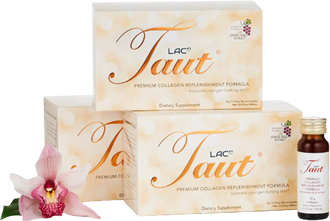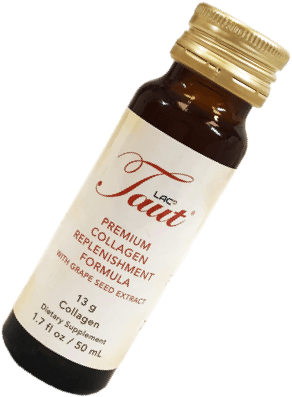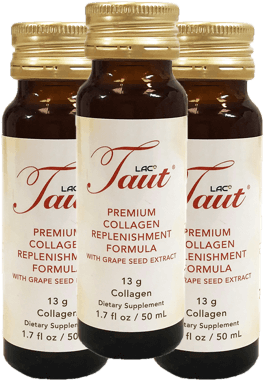Intermittent Fasting Results: How Does It Work (1 Month Before and After)

Doesn’t it seem like every time you blink there’s a new diet that promises you quick and easy weight loss? From the classic South Beach Diet to the newly popular Keto Diet, diets are everywhere you look.
Fasting for weight loss, or ‘time-restricted eating’ has gained popularity in recent years, and more and more people are becoming converts every day. One of the reasons why intermittent fasting works and has gained popularity is because you don’t have to be as restrictive when it comes to what you eat (as you would on other diets, like Keto, for example).
Considering the fact that there's no restrictive meal plan, intermittent fasting could be the best weight loss plan to help you get rid of unwanted belly fat.
So, can intermittent fasting improve your health and should you give it a try?
We’ve put together a guide for women interested in this diet, intermittent fasting results you can expect (including benefits other than weight loss), tips on how to eat, different fasting methods, and the best skin care for fasting. With all of this information, you can decide for yourself if this diet is right for you.
Let’s dive in and explore all of the many facets of the intermittent fasting diet.
What Is Intermittent Fasting—How Long to See Results?
Have you seen incredible intermittent fasting before and after photos on Instagram and YouTube? This way of eating has become an increasingly popular weight-loss method over the years.
It’s hard to ignore all of the intermittent fasting weight loss results men and women are experiencing, but eating this way has a wide variety of other health benefits as well.
So what is it? Intermittent fasting involves arranging your week into periods of fasting and eating. During periods of eating, you can eat pretty much anything you want as there are no restrictions on certain types of food and no specific daily eating plan. During periods of fasting, you either eat very little or nothing at all.
It’s essentially a cycle of eating and fasting, and it doesn’t tell you what to eat, but rather when to eat. So, it’s not really a diet rather than a style or pattern of eating, if you will.
Though it may sound daunting, fasting is not such a weird concept if you think about it because intermittent fasting comes naturally with your circadian rhythm. During those 7 or so hours that we're asleep at night, we are technically fasting. In fact, the word breakfast comes from the phrase 'breaking your fast,' which you do in the morning when you first grab a bite to eat after a night’s sleep.
Moreover, there are many religions (Judaism, Islam, Buddhism, Christianity) that advocate fasting during different holy days, so you can see that as humans, we really are no strangers to the concept at all. Basically what we’re trying to say is don’t let the idea of going several hours without eating food scare or deter you.
Benefits of Intermittent Fasting (Fat Loss & More)
Besides weight loss, there are inevitable changes that occur in your body during fasting periods that are beneficial in a number of ways. As a matter of fact, some of the best things about time-restricted eating have nothing to do with weight loss. Whether you, your husband, or your friends are considering this style of eating, we recommend reading up on how fasting can directly benefit the body. Here are the 8 of the best health benefits of fasting:
1. Cellular repair – Cell repair processes start during your fasting window.1
2. Improve hormone levels – Research has shown that insulin levels drop and insulin sensitivity improves with fasting. This causes fat oxidation to increase and helps with weight loss. It therefore reduces the risk of Type 2 Diabetes.2, 3
3. Increase Human Growth Hormone levels – HGH levels can increase five-fold during fasting, which can help with fat loss, increase muscle mass, and change your body composition.4
4. Gene expression – Genes undergo changes that help to increase longevity, according to some research.5
5. Loss of belly fat – Lower hormone levels and higher levels of HGH both help with weight loss, particularly in the belly area, by breaking down body fat. Belly fat can be particularly harmful and lead to various diseases.
6. Faster metabolism – Research shows that fasting can increase your metabolic rate, helping you burn more calories.6, 7
7. A healthier brain – Animal research shows that this diet may help the growth of new nerve cells and also possibly protect against Alzheimer’s disease.8
8. Cancer prevention – A study on animals shows that intermittent fasting may also support cancer prevention, helping you live longer.9
More helpful reading:
https://www.renewskinco.com/blogs/i/how-to-lose-weight-10-pounds-in-4-weeks
How Does One Fast?
Although people have different views on how intermittent fasting works, Dr. Jason Fung, MD, one of the leading health specialists in the fasting world, explains that many of the benefits come from the ability to reduce the amount of insulin in the body during a fast.7
So how does fasting work? When you eat (carbohydrates in particular), your body releases the hormone insulin. When you release this hormone, it prompts your liver to do two things: 1) store glucose in your liver and 2) transform the remaining glucose that you don’t need or use into fat.7
Conversely, when you fast, you are able to lower the amount of this hormone in the body. When we’re in a ‘fasted state’ (as opposed to a ‘fed state’), we are utilizing the glucose that's stored in our fat as fuel instead of consuming more glucose for energy.7
Additionally, as explained in the above section ‘Benefits of Intermittent Fasting’, while on a fast plan your metabolism can increase. So, both utilizing our stored glucose and having a faster metabolism can help maintain weight loss in the long term.
Note: While some people may think that a fast plan relies on calorie counting and lowering your calorie intake to lose weight, you should be wary of this health information. In order to get the benefits from a fast, you do not need to rely on calorie restriction. We don't recommend any sort of extreme calorie restriction, especially if you have a history of an eating disorder or disordered eating.7
How Long Does It Take To See Results From Intermittent Fasting?
You may be wondering “How long does it take for intermittent fasting to work?”
The answer: It depends on your health and well-being.
Unfortunately, there is no cookie-cutter answer for when you will start to see the benefits of a fast plan. The thing is, how long till you see results from intermittent fasting can depend on the type of fasting that you are practicing and other factors like your genetics, gender, health, etc.
When it comes to intermittent fasting results, you might not experience any right away. For some women, it may take up to 6 weeks or more to experience any of the benefits like weight loss, cell repair, or significant cognitive improvement after starting intermittent fasting.
1-week results may not look like much, although you might start to sleep better. After continuing with intermittent fasting, results 1-month into the diet plan may look like a few pounds down on the scale and noticeably more energy.
As a general rule, be wary of an intermittent fasting plan or any other eating plan that promises fast diet results due to severe calorie restriction. Quick weight-loss usually won’t last and will most likely cause you to regain the weight that you lost. In the long-term, you may end up weighing more than when you started.

How to Eat While Intermittent Fasting
One thing that’s great about the intermittent fasting diet is how simple it is. You don’t need to buy any special food or diet products that you wouldn't normally purchase.
Technically, you can eat anything you want while practicing time-restricted eating, but that doesn't mean you should feel like you need to overindulge or binge eat, especially not every day.
In general, people who practice this way of eating choose to avoid junk food products during their eating window. Remember that you should still have a healthy nutrition plan which includes a good amount of protein, whole foods, healthy fats, fruits and vegetables, and whole grains. Of course, you can still have the occasional snack in between meals during your eating window if you feel like it.
More helpful reading by RenewSkin Inc.: How to detox your skin.
And, just because you aren’t supposed to eat while you fast, doesn’t mean that you shouldn’t be drinking water. Staying well-hydrated is essential, especially during your fast.
It’s important to be aware of what and when you eat during your eating window, however, if you are experiencing an unhealthy mindset around food, it’s best to take a break from fasting and come back to it later.
If you’re uncomfortable with not consuming any calories at all during your 16, 18, or 24-hour window, you can choose to do what is known as a 'fat fast.' Many people choose to eat or drink healthy fats during their fast because it won’t raise blood sugar. Yes, we're talking about butter and full-fat heavy cream. The reason why people do fat fasts is because 'healthy fats' are able to trick the body into thinking that it’s still fasting, while still getting plenty of energy from calories. This is where the trend of putting butter in coffee comes from.
More helpful reading by RenewSkin Inc.:
https://www.renewskinco.com/blogs/i/dietitian-tips-for-healthy-skin
How to Do Intermittent Fasting
This eating style involves splitting up your week to comprise of ‘fasting times’ and ‘eating times.’
Although, there are a few ways to fast while having a healthy relationship with food. Some methods, such as the Warrior Diet, may cause certain women—especially those with a history of disordered eating—to develop an unhealthy relationship with food.
This is because methods similar to the Warrior Diet encourage women to take in as much food as possible at the end of their fast which can trigger the ‘diet-binge cycle.’
Below we’ve listed three of the most common approaches to getting the best intermittent fasting results. Men and women may need to take different approaches to this diet because of factors like metabolism, health issues, and weight.
It’s common for people to switch between different methods (for example, fasting during a 16 or 24-hour window)—especially in the beginning.
There are many different approaches to this diet, but the following are the most popular methods that most women and men employ.
Top 3 Approaches To Intermittent Fasting
1. The 16:8 Plan
The 16:8 intermittent fasting plan is by far the most popular eating method because it is considered to be the easiest or most doable one of them all. The 16:8 plan involves an 8-hour eating window and a 16-hour fasting period.
Generally, when women decide to fast for 16 hours, they eat breakfast later or skip it altogether. For example, if you choose the 16:8 method, your eating window could be from 12 p.m. to 8 p.m., leaving you with a 16-hour fasting window and an 8-hour eating window. Naturally, your sleeping hours also count as fasting hours.
If you want to get started with the 16:8 method, try a step-by-step approach. Before starting the 16:8 style, try 10 hours of fasting a few days per week during the first week. Then, over the course of 3 to 4 weeks, gradually increase the amount of time you are able to fast. After a few weeks, you should be able to maintain 16 hours of fasting and 8 hours of eating a few days per week.
2. The Eat-Stop-Eat Plan
Unlike the 16:8 method, this plan involves fasting for 24 hours one or two times per week. For example, if you eat dinner at 8 p.m., you wouldn’t eat any food until 8 p.m. the next day. This way of eating can be a little bit more challenging, but you only have to do it one or two times per week at most to get all of the benefits, so it’s not a diet you need to adhere to daily.
3. The 5:2 Diet Plan
Many of the human studies regarding time-restricted eating study the 5:2 fast. With the 5:2 diet method, you lower your calories on two non-consecutive days out of the week but eat as you normally would the other five days of the week. The 5:2 diet allows you to choose which days of the week that you want to lower your calories. On these days, you can eat your set amount of calories all at one time or throughout the day.7
Note: No matter whether you choose the 16:8, Stop-Eat-Stop, or the 5:2 plan, using significant calorie restriction to lose weight can have negative effects in the long-term. It’s important to evaluate your calorie intake before starting any sort of eating program, especially intermittent fasting.10

Is Fasting Right For You?
Most healthy women will be able to do time-restricted eating without a problem, but there are some who should not attempt it. If you are underweight, have struggled with eating disorders in the past, are in recovery, or are dealing with one currently, intermittent fasting and calorie-counting may be harmful to you and is not recommended.
If you are pregnant or breastfeeding, this way of eating is not recommended because it can be harmful to the fetus or baby.
If you have Type 1 Diabetes, fasting should not be attempted without consulting your doctor.
If you are prone to vertigo or deal with low blood sugar levels, intermittent fasting may worsen the condition.
Additionally, if you suffer from chronic stress or adrenal issues, Intermittent Fasting is not recommended. Moreover, for women of childbearing age, intermittent fasting may exacerbate PMS. Also, if you take medications for blood pressure or heart disease, intermittent fasting may be detrimental. As a rule, it’s always a good idea to consult your doctor or healthcare provider before attempting a new diet.
How Intermittent Fasting Impacts Your Skin
The goal of intermittent fasting is to burn off your unwanted body fat. However, our genetics determine how we store fat and how our body will get rid of fat. Most women tend to store fat in the tummy and buttocks first and lose from these areas last. And unfortunately, many women start to lose weight from their faces first.
In essence, you could lose the good fat that keeps your face looking full and plump. Obviously, not everyone will be upset with losing face fat, but the truth is that your skin may start to sag and become less firm after significant weight loss.
How to Plump Your Skin with Taut Collagen
This is where using the best collagen supplements comes in. While you’re practicing intermittent fasting, you can still take drinkable collagen supplements to keep your skin firm and full. Hyaluronic acid and collagen in particular are essential when it comes to keeping the skin plump and taut.
Collagen is the most abundant protein in the body and it is essentially what gives the skin its structure and strength. It prevents wrinkle formation and sagging, but unfortunately, we lose it slowly as we age.
Hyaluronic acid also occurs naturally in our bodies (skin, joints, eyeballs), and works to keep the skin nicely plump and hydrated. But, just like collagen, hyaluronic acid also diminishes with age.
Together, hyaluronic acid and collagen will keep your skin youthful and beautiful. That’s why we’ve combined these two skin-loving ingredients in our Taut Premium Collagen Intense Transformation package.
This fabulous transformation bundle contains 3 boxes of our top-selling liquid collagen drink. Each bottle delivers 13,000mg of marine hydrolyzed collagen sourced from the scales of wild Red Snapper from the Indian Ocean, straight to your skin.
The formula also combines ingredients like elastin peptides, hyaluronic acid, grape seed extract, vitamin C, and salmon DNA to jumpstart to your natural collagen production and reverse the signs of aging in as little as 21 days.
Our liquid collagen is different from other skincare products because it improves your skin from the inside out, giving you firmer, fuller, and more luminous skin that even your husband and friends will notice.

How to Incorporate Taut Collagen Into Your Routine While Intermittent Fasting
Taut’s Collagen Advanced Formula is a great way to introduce yourself to collagen supplements if you haven’t already. With regular use, you will find that your skin appears more supple and lifted.
If you’re practicing the 16:8 method of Intermittent Fasting, you can easily take our Taut Collagen supplement after your fasting window.
For example, you can eat from 2 pm to 10 pm and take the supplement right before your 10 pm bedtime. If you plan to sleep later, you can adjust your fasting hours accordingly.
You can also drink Taut Collagen after you break your fast. And, we recommend you do so at least 30 mins before eating or drinking coffee.
If you’re doing the 5:2 method, you can still take the supplement drink on fasting days as long as you stay within your target calories.
The eat-stop-eat method may prove a little more difficult to do unless you happen to eat dinner very late or right before bed.
Ultimately, bear in mind that when you are fasting you will most likely be losing weight — which means you will lose fat under your skin. This can make your skin appear saggy or sunken. Loading up on collagen and hyaluronic acid can provide the extra boost of collagen you need to make sure your skin looks plump. As your body gets slim, your face will look just as good.
The Bottom Line: Intermittent fasting has many health benefits and is less restrictive than diets like the Keto Diet. It may be worth a try if you’re looking to lose weight and nothing else has worked. Patience and consistency will be your friends as you embark on this eating style.
By supplementing your intermittent fasting plan with our liquid collagen drink, you can ensure that you’re replenishing the collagen and hyaluronic acid that you need to be your most radiant self.
Here’s what some satisfied customers have to say:
“I love Taut! The replenishment formula has become the first thing I drink every morning before I get out of bed. The effects it has had on my skin are wonderful!” – Linda T.
“As a 67-year old, I have been pleasantly surprised with the overall improvement in my skin. My face has an added healthy look and the biggest surprise has been the diminished look of wrinkles on my arms. I have been drinking a bottle every night for 21 days and will be lowering the dosage to every other day to see if the [benefits] will remain.” – Diane D.
“Being 60 I am always on the hunt for that miracle product to give me back that fullness in my face and lips. I am just so amazed, this really works! I will not need to get filler this time. Thank you for giving us a collagen that actually does its job.” – Tammy S.
Have a question about our Intense Transformation or any of our products? Contact the customer service team today!
Want to learn more about Intermittent Fasting, 16/8, before and after experiences, tips, and general information about time-restricted eating? Find out more here:
References
- https://www.ncbi.nlm.nih.gov/pmc/articles/PMC3106288/
- https://www.ncbi.nlm.nih.gov/pubmed/15640462
- https://www.sciencedirect.com/science/article/pii/S193152441400200X
- https://www.ncbi.nlm.nih.gov/pmc/articles/PMC329619/
- https://pubmed.ncbi.nlm.nih.gov/24048020/
- https://www.ncbi.nlm.nih.gov/pubmed/2405717
- https://www.dietdoctor.com/intermittent-fasting
- https://www.ncbi.nlm.nih.gov/pubmed/11220789
- https://www.ncbi.nlm.nih.gov/pubmed/3245934
- https://thefastingmethod.com/the_key_but_false_assumptions_of_calorie_coun







